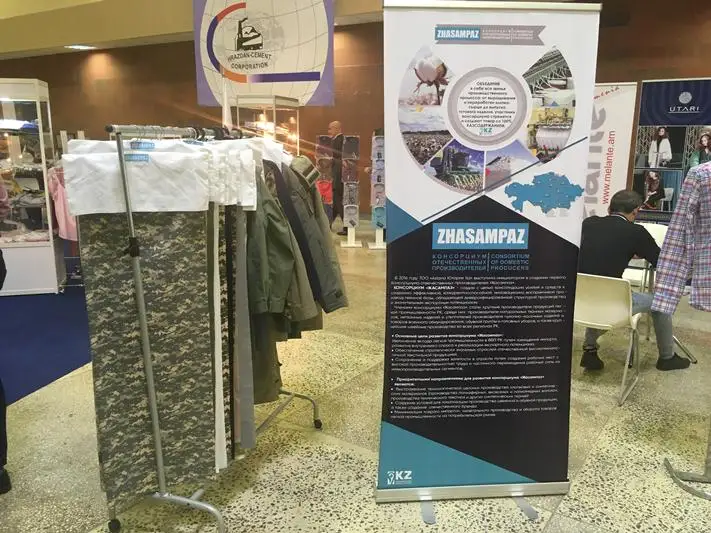Eurasian manufacturers keen on cooperating with Kazakhstani producers


According to her, Utaria group of companies was established in 2013 with two production platforms in Karaganda region and in Astana. "In 2013, we built KazTechExpo automated manufacturing unit in Astana's Industrial Park under the Business Road Map programme. The unit is expected to produce more than 1.5 million items per annum at full operating capacity. Today, its capacity is 17%," she says.
In her words, Utaria manufactures a wide range of products to date: specialized clothing for various sectors, home textile, knitted fabric and tailored suits. 
"Zhasampaz Consortium of Domestic Producers was established in 2017 and included 5 companies. Nowadays their number makes 51 - these are the producers of raw materials and ready products. The goal of the Consortium members is to consolidate efforts and localize light industry production in Kazakhstan," said Zhurgenova.
She emphasized that the attendees of the Eurasian Week in Yerevan showed great interest in the products and experience of Kazakhstan's light industry companies.
"Our participation in exhibition demonstrated huge interest from our Armenian colleagues in our companies' activity, namely in the model of effective mutually beneficial interaction of the governmental and private sectors, like our cooperation with the Ministry of Defense," she stressed.
"Our colleagues from Armenia were also surprised to learn that Kazakhstan produces its own fabrics. Prior to 2016, almost all volumes of cotton were exported abroad and fabrics were not weaved. Now we process cotton picked up in Shymkent at our local textile plants and we do produce fabrics ourselves," Assel Zhurgenova pointed out.
"Two Armenian companies specializing in overalls production showed interest in using Kazakhstani raw materials. Alongside, one Armenian retailer expressed interest in our knitted products. We agreed to develop further cooperation with all of them," she concluded.